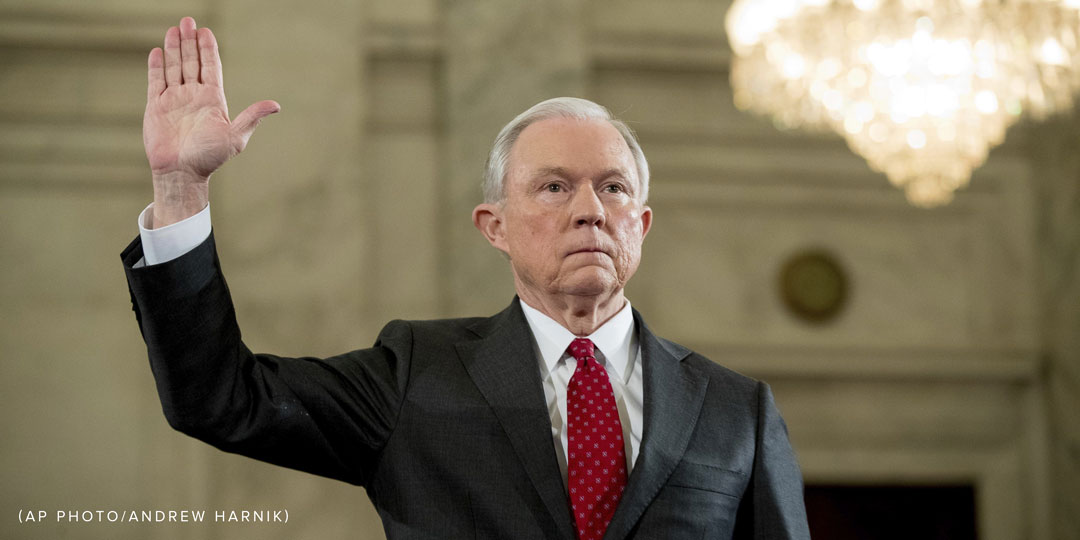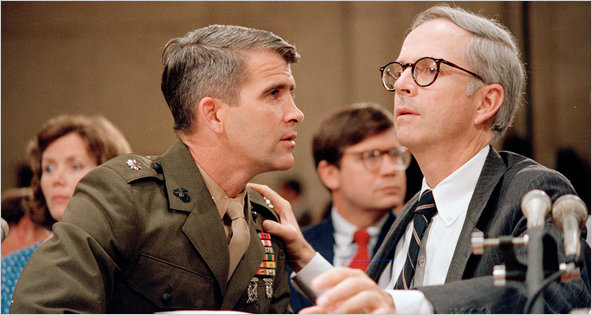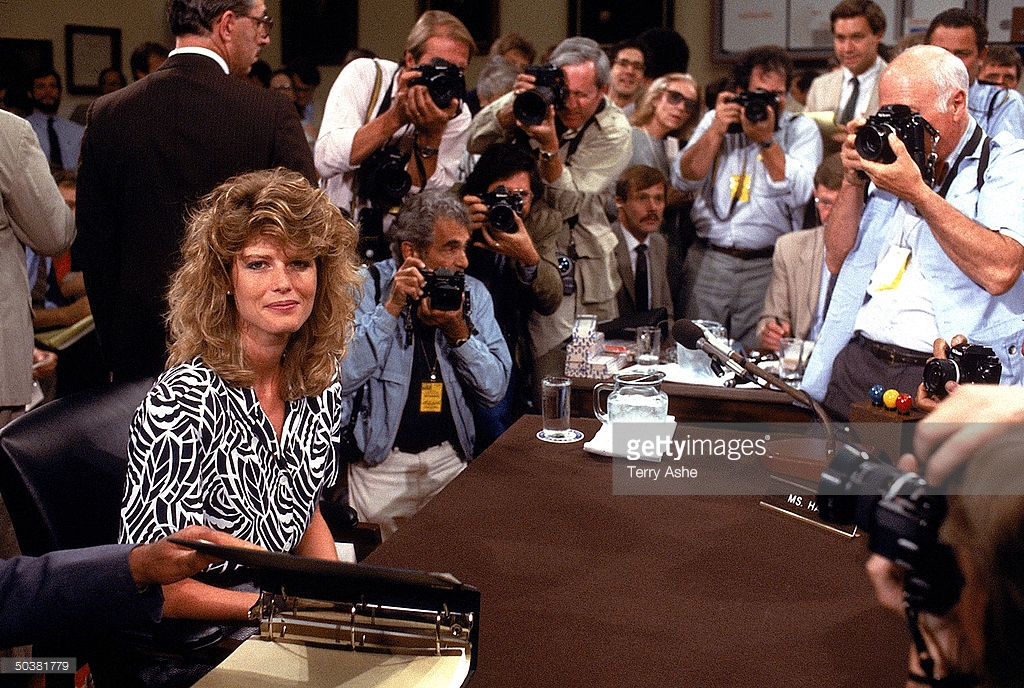
Did Sessions Commit Perjury? A Trial Attorney Weighs In
Did Jeff Sessions commit perjury? Well here’s the quintessential answer that an attorney would give: ‘It depends.’ In January of 2017, during his confirmation hearings, Attorney General Jeff Sessions went on the record telling Congress that he did not have communications with Russian officials during the 2016 presidential campaign. On March 1st, 2017, the Justice Department said that Sessions had in fact spoken with the Russian ambassador not once, but twice, in 2016.
In plain English, perjury means “Willfully lying in a court or to a law enforcement officer after being administered an oath to tell the truth.”
The United States Code 18 U.S. Code § 1621 defines perjury as follows:
“Whoever, having taken an oath before a competent tribunal, officer, or person, in any case in which a law of the United States authorizes an oath to be administered, that he will testify, declare, depose, or certify truly, or that any written testimony, declaration, deposition, or certificate by him subscribed, is true, willfully and contrary to such oath states or subscribes any material matter which he does not believe to be true.”
The legal term “perjury” comes up frequently in the practice of personal injury law. Witnesses are sworn in by giving an oath before they testify at deposition or trial. Even in the informal law office setting of a deposition, witnesses take an oath to tell the truth, and that oath holds the same weight of penalty of perjury as if it was uttered in a courtroom in front of the judge and jury. You all have heard the oath. You raise your right hand and swear to “tell the truth, the whole truth and nothing but the truth.”
If you fail to tell the truth in your personal injury case then you have “perjured” yourself. If the opposing counsel realizes it, it can be brought before the court and a number of things can happen.
- First and foremost, your credibility will be ruined. The defense attorney will demonstrate your untruthful testimony to the jury, and you can kiss your chances of a victory goodbye.
- Even worse, you could potentially be held in contempt of court and, depending on the severity of your lie, you could be forced to pay monetary sanctions or, in the worst case scenario, you could theoretically end up in jail.
However, sometimes it might not be so clear that a lie actually is a lie. There are half-truths, mis-recollections and innocent failures to recollect. For example, maybe the testimony of a witness was not intentionally false, but was unintentionally misleading, or incomplete due to the omission of critical facts, or the witness simply misunderstood the question.
On other occasions, the witness may avoid responding to the question, or avoid responding substantively, by use of the phrase “I don’t recall” or “I don’t know” to avoid perjury.
Using “I Don’t Recall” to Avoid Perjury

Oliver North and his attorney Brendan Sullivan photo credit: New York Times
In July 1987, Lieutenant Colonel Oliver L. North — the then White House National Security Adviser — testified before the Iran–Contra joint congressional committee. To very briefly summarize the Iran–Contra complexities, the Justice Department was investigating the acts of some in the Reagan administration who sold military arms to Iran in exchange for the release of American hostages. The administration then diverted the profits from the arms sales to secretly fund the anti-communist Contras in Nicaragua after Congress cut off U.S. military backing of the rebels in 1984. The Iran-Contra affair hearings, which were televised, featured Oliver North and his telegenic assistant Fawn Hall.

Fawn Hall. Photo credit: Getty Images
Oliver North admitted to shredding government documents with the help of Fawn Hall. North was well prepared by his outspoken attorney, Brendan Sullivan, who uttered the infamous line during one of many contentious exchanges: “I’m not a potted plant. I’m here as the lawyer.”
North’s preparation enabled him to avoid responding to certain questions where his testimony could have placed him in jeopardy of perjury because his testimony would have been refuted by other witnesses. For example, when questioned about his conversations with his supervisor, Admiral Poindexter, North repeatedly responded that he “could not recall.” Throughout his testimony, North repeatedly dodged answering questions by using the response: “I don’t recall.”
In fact, according to the book The Spectacle of History: Speech, Text, and Memory at the Iran-Contra Hearings, committee witnesses, including North, John Poindexter and Ed Meese, used variations of “I don’t recall” more than 200 times.
Ultimately, for various reasons, including his use of “I don’t recall” and issues regarding his immunity for testifying before the committee, North’s three convictions were all overturned by the federal Court of Appeals.
Perjury Issues Arise Again in the Tumultuous
World of Politics
The Washington Post published an article on March 2, 2017 entitled: Could Sessions face perjury charges? Former Federal Prosecutors Think Not
On January 10, 2017, the Senate Judicial Committee held a confirmation hearing for then U.S. Senator Jeff Sessions for the position of U.S. Attorney General. Sen. Al Franken asked Sessions “what he would do” if he learned “anyone affiliated with the Trump campaign communicated with the Russian government in the course of this campaign.”
Sessions responded: “Senator Franken, I’m not aware of any of those activities. I have been called a surrogate at a time or two in that campaign and I didn’t have — did not have communications with the Russians — and I’m unable to comment on it.”
Sessions, as a former U.S. Attorney and U.S. Senator, has complete knowledge of what it means to commit perjury. There are many ways to look at Attorney General Sessions’ testimony. Did he knowingly lie? Did he understand the question? Did he intentionally avoid the truth? Was he confused? Did he mislead Senator Franken? If so, did he mean to or was it accidental?
When you boil the question down to it’s simplest form it reads as follows: “If there is evidence that anyone related to the Trump campaign communicated with the Russian government during the campaign, what would you do?”
A simple and suitable answer to this question for Mr. Sessions would have been that he would conduct a thorough investigation, and if such evidence was uncovered they would then deal with it appropriately under the law. Instead, he answered that he did not have communications with the Russians, a fact that was patently untrue.
Was Attorney General Sessions ‘Willingly Untruthful’?
Attorney General Jeff Sessions thereafter asserted that his January confirmation testimony to the Senate Judiciary Committee was “correct,” not “willingly untruthful,” by saying that he did not disclose meetings with the Russian ambassador to the United States because he was not specifically asked about them.
Sessions further explained his lack of any intent to deceive, as follows:
“I did not mention communications I had had with the Russian ambassador over the years because the question did not ask about them… I answered the question, which asked about a continuing exchange of information during the campaign between Trump’s surrogates and intermediaries for the Russian government, honestly.”
So, Did Attorney General Sessions Commit Perjury?
The Washington Post revealed that Sessions twice met with Russian Ambassador Sergey Kislyak during the campaign and did not disclose that to the Senate Judiciary Committee during his confirmation hearing in their article dated March 1, 2017.
Experts suggest that Sessions’ testimony may not rise to the level of perjury. The key question is whether Sessions can be proved to have been “willfully untruthful” during the January confirmation hearing, Darryl K. Brown, a law professor at the University of Virginia, told Business Insider.
Moreover, Sessions’ answer is essentially non-responsive to the question asked. Maybe it is even suspicious that he would volunteer an answer that does not actually answer the question asked?
Perjury is “very difficult charge to prove,” said Laurie L. Levenson, a former federal prosecutor and a professor at Loyola Law School, told Business Insider. “A defendant must knowingly lie under oath,” Levenson continued. “His exact words matter.”
Sessions probably will not be held accountable for his answer, and it is debatable whether or not the intent of the answer rises to the level of perjury. Sessions probably would have been better off answering the question as follows: “I do not recall,” just like Oliver North responded after being prepared for his testimony.
Disclaimers:
The information in this blog post (“post”) is provided for general informational purposes only, and may not reflect the current law in your jurisdiction. This blog is not intended to, and does not, create an attorney client relationship, an offer of employment or a guarantee of success for clients of The Drexler Law firm. No information or representation contained in this post should be construed as an offer of employment, guarantee of success or the creation of an attorney client relationship with The Drexler Law firm, nor as legal advice from The Drexler Law Firm or the individual author. No reader of this post should act, or refrain from acting, on the basis of any information included in, or accessible through, this post without seeking the appropriate legal or other professional advice on the particular facts and circumstances at issue from a lawyer in the corresponding jurisdiction.
There are time deadlines during which a case must be brought, according to your jurisdiction or state, and failing to abide by the jurisdictional statute of limitation rules can result in your case being time-barred. 6 Cal.3d 267, 277.

 0
0